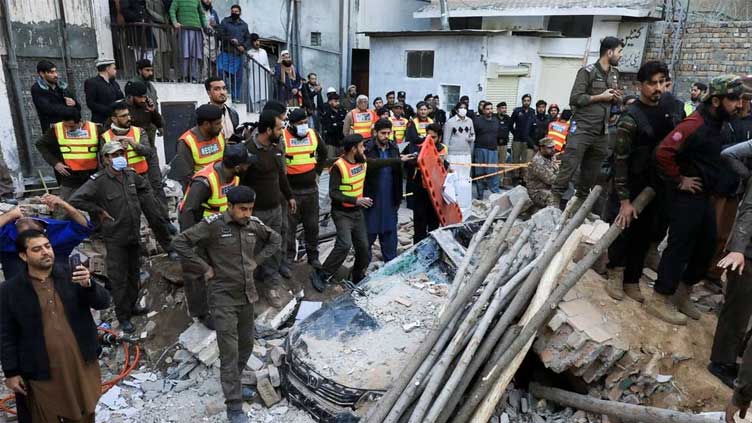Suicide bomber may have had 'internal assistance': Peshawar CCPO

Pakistan
Suicide bomber may have had 'internal assistance': Peshawar CCPO
PESHAWAR, Pakistan (Reuters) - Pakistani police investigating how a suicide bomber reached a mosque inside a highly fortified compound and killed over 100 people said on Wednesday the attacker may have had "internal assistance", and that several suspects had been arrested.
Monday’s bombing was the deadliest in a decade to hit Peshawar, a restive northwestern city prone to Islamist militant violence near the Afghan border.
All but three of those killed were police officers, making it the worst attack on Pakistani security forces in recent history, and the most lethal in a recent surge of violence that has targeted police in the frontier Khyber Pashtunkhwa province.
"We have found some excellent clues, and based on these clues we have made some major arrests," Peshawar Police Chief Ijaz Khan told Reuters. "We can’t rule out internal assistance but since the investigation is still in progress, I will not be able to share more details."
The bomber struck as hundreds of worshippers gathered for noon prayers in a mosque that was purpose-built for the police and their families living in a highly fortified zone.
Investigators, including counter-terrorism and intelligence officials, are focusing on how the attacker managed to breach the military and police checkpoints leading into the Police Lines district, a colonial-era, self-contained encampment in Peshawar city centre that houses middle- and lower-ranking police personnel and their families.
The attack has rattled the force, prompting unprecedented protests by police personnel across the province.
"How long will this injustice against us last?" one of the protesters, who was wearing a bulletproof vest, told reporters. Another group of policemen in Peshawar chanted: "We want peace."
Peshawar sits on the edge of the Pashtun tribal lands, a region mired in violence for the past two decades. The most active militant group in the area, the Pakistani Taliban, also called Tehreek-e-Taliban Pakistan (TTP), has recently increased attacks on the police as part of its campaign against the government in Islamabad.
The TTP has denied responsibility for the mosque attack, which no group has claimed so far. Provincial Police Chief Moazzam Jah Ansari told Reuters he suspected a breakaway faction of the TTP called Jamat-ul-Ahrar was involved. Remains of the bomber had also been recovered, he added.
The attack was the deadliest in Peshawar since twin suicide bombings at All Saints Church killed scores of worshippers in September 2013, in what remains the worst strike on the country’s Christian minority.
Among Monday’s dead was Irfan Khan, a father of five. "I miss my father very much," Khan’s son Arsalan, 11, told Reuters as the family accepted condolences at their home. "I saw my father for the last time on Friday. I will never see him again."

